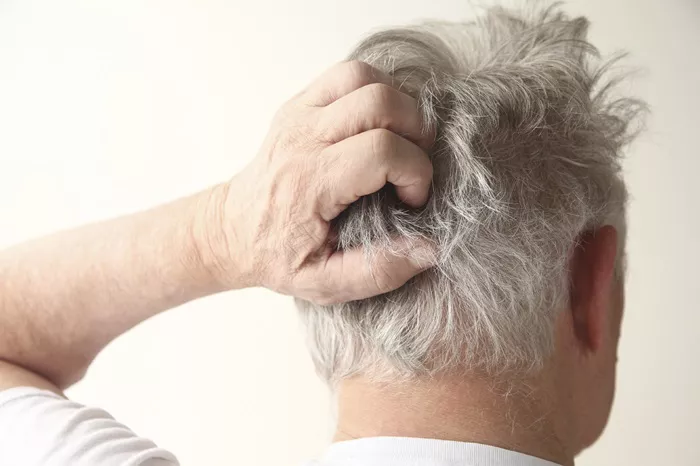Seborrheic dermatitis is a common skin condition. It primarily affects the scalp. It causes red, flaky, and itchy patches. These patches can also appear on oily areas of the body. This includes the face, upper chest, and back. The exact cause of seborrheic dermatitis is unknown. However, factors like genetics, stress, and yeast on the skin play a role.
Impact on Hair Growth
Seborrheic dermatitis can affect hair growth. The inflammation and itching can lead to scratching. This can damage hair follicles. Hair loss can occur as a result. The condition can also cause scaling. These scales can block hair follicles. This makes it difficult for hair to grow.
Will Hair Grow Back?
The good news is that hair can grow back. The key is to manage the seborrheic dermatitis effectively. Once the inflammation is under control, hair follicles can recover. Hair growth can resume. However, the extent of hair regrowth can vary. It depends on the severity of the condition and how long it has been untreated.
SEE ALSO: What Is the Best Medicine for Alopecia Areata?
Effective Treatment Options
There are several treatment options for seborrheic dermatitis. These can help manage symptoms and promote hair growth.
Medicated Shampoos: Shampoos containing ketoconazole, selenium sulfide, or zinc pyrithione can be effective. They help reduce yeast on the scalp. This can decrease inflammation and scaling.
Topical Steroids: These can help reduce inflammation. They should be used under a doctor’s supervision. Overuse can cause side effects.
Antifungal Creams: These can be applied to affected areas. They help control yeast growth.
Moisturizers: Keeping the scalp moisturized can reduce flakiness and itching. Non-greasy moisturizers are best.
Lifestyle Changes: Reducing stress can help manage symptoms. A healthy diet can also support skin health.
Home Remedies
Some home remedies can also help. These include:
Tea Tree Oil:
This has antifungal properties. It can be added to shampoo. However, it should be used with caution. It can cause irritation in some people.
Aloe Vera:
This can soothe the skin. It can reduce inflammation and itching.
Coconut Oil:
This can moisturize the scalp. It also has antifungal properties.
Consulting a Doctor
It’s important to consult a doctor for seborrheic dermatitis. A dermatologist can provide a proper diagnosis. They can recommend the best treatment plan. They can also monitor for any complications. In some cases, seborrheic dermatitis can be mistaken for other conditions. These include psoriasis or eczema.
Long-Term Management
Seborrheic dermatitis is a chronic condition. This means it can flare up from time to time. Long-term management is important. This includes using medicated shampoos regularly. It also includes following a healthy lifestyle.
Preventing Hair Loss
Preventing hair loss involves managing seborrheic dermatitis. Avoid scratching the scalp. This can prevent damage to hair follicles. Use gentle hair care products. Avoid those with harsh chemicals. Regularly moisturize the scalp. This can reduce flakiness and itching.
Emotional Impact
Seborrheic dermatitis and hair loss can have an emotional impact. It’s important to address this. Support groups can help. Talking to a therapist can also be beneficial.
Conclusion
Seborrheic dermatitis can cause hair loss. However, with proper treatment, hair can grow back. Managing the condition is key. Consult a doctor for the best treatment plan. Use medicated shampoos and topical treatments. Consider home remedies with caution. Practice good hair care habits. With these steps, you can manage seborrheic dermatitis and promote hair growth.
FAQs
Is There a Permanent Cure for Seborrheic Dermatitis of the Scalp?
As of now, there is no permanent cure for seborrheic dermatitis of the scalp. Seborrheic dermatitis is a chronic condition that can be managed effectively but not completely eradicated. Treatments aim to control symptoms, reduce inflammation, and manage flare-ups. This typically involves using medicated shampoos, topical treatments, and lifestyle adjustments. While effective management can significantly improve quality of life and minimize symptoms, ongoing treatment and maintenance are usually necessary to keep the condition under control.
Should I Wash My Hair Every Day if I Have Seborrheic Dermatitis?
Washing your hair every day is not necessarily required if you have seborrheic dermatitis, but regular washing can help manage symptoms. It’s important to use a gentle, medicated shampoo recommended by a healthcare provider. Daily washing can help remove excess oil and flakes, but it may not be suitable for everyone. Some individuals find that washing every other day or a few times a week works best for them. It’s important to avoid overwashing, as this can strip the scalp of natural oils and potentially exacerbate dryness and irritation. Finding the right balance is key, and consulting with a dermatologist can help determine the best hair-washing routine for your specific needs.
Is Seborrheic Dermatitis Lifetime?
Seborrheic dermatitis is generally considered a lifelong condition. It can be managed effectively, but it often persists over time, with periods of flare-ups and remissions. The condition can be triggered or worsened by factors such as stress, hormonal changes, and environmental conditions. Long-term management involves consistent treatment and lifestyle adjustments to control symptoms and reduce flare-ups. While it may not go away completely, many people are able to manage their symptoms well with appropriate treatment and care.

